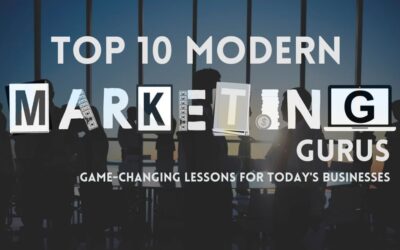In the fast-paced world of marketing, staying ahead of consumer trends and preferences is paramount. As technology evolves, one of the most significant advancements reshaping the marketing landscape is the use of AI-powered people-tracking tools. These tools leverage artificial intelligence to analyze consumer behavior, preferences, and trends, enabling marketers to create more targeted and effective campaigns. Here’s a closer look at how these tools are transforming the marketing game and what the future holds.
Understanding AI-Powered People Tracking Tools
AI-powered people-tracking tools utilize a combination of data analytics, machine learning, and artificial intelligence to gather insights about consumer behavior. These tools can track how individuals interact with brands across various platforms, both online and offline. This includes analyzing data from social media, website interactions, mobile app usage, and even in-store visits through location tracking technologies.
By consolidating this data, marketers gain a comprehensive understanding of their audience, allowing for personalized marketing strategies that resonate with consumers on a deeper level.
Tracking Offline Consumer Behavior
One of the most remarkable aspects of AI-powered tracking tools is their ability to monitor offline consumer behavior. This tracking can occur through various methods, including:
- Geolocation Services: Brands can use geofencing to send targeted advertisements to consumers’ smartphones when they enter a specific location, such as a store. For instance, if a customer walks by a coffee shop, they may receive a notification about a special offer or promotion.
- In-Store Foot Traffic Analytics: AI tools can analyze foot traffic patterns using sensors or cameras within physical stores. By tracking where customers linger or which products they engage with, businesses can optimize store layouts and product placements. Tools like RetailNext and Zebra Technologies provide insights into customer flow and behavior, enhancing in-store marketing strategies.
- Point-of-Sale (POS) Systems: By integrating AI with POS systems, retailers can gather data on customer purchases, allowing them to analyze buying trends and preferences. This data can then be combined with online behavior for a more comprehensive view of consumer habits.
Enhanced Personalization
One of the most significant benefits of AI-powered people-tracking tools is their ability to enable hyper-personalization. Traditional marketing approaches often rely on broad demographic data, which may not accurately reflect individual preferences. With AI tools, marketers can analyze behavioral data to create tailored experiences.
For example, an e-commerce platform can use tracking tools to recommend products based on a user’s browsing history and purchasing patterns. This level of personalization not only enhances the customer experience but also increases conversion rates and customer loyalty.
Predictive Analytics: Anticipating Trends
AI-powered tracking tools excel at predictive analytics, allowing marketers to anticipate future consumer behavior. By analyzing historical data, current market trends, and user interactions, AI can identify patterns that indicate emerging preferences. Here’s how it works:
- Data Analysis: AI algorithms can analyze vast amounts of consumer data, including past purchases, online interactions, and social media activity, to identify trends.
- Trend Forecasting: For instance, if a specific category, like eco-friendly products, shows increasing sales and engagement, AI can predict a continued rise in interest, prompting marketers to adjust their strategies accordingly.
- Consumer Sentiment Analysis: By monitoring social media conversations and reviews, AI can gauge consumer sentiment and adapt marketing strategies in real-time. Tools like Brandwatch and Hootsuite Insights utilize AI to analyze social media sentiment, helping brands understand consumer attitudes.
Accuracy of Predictions
The accuracy of AI predictions is largely dependent on the quality and volume of data processed. With sophisticated algorithms and machine learning capabilities, many AI tools can achieve remarkable accuracy rates:
- Predictive Accuracy: According to a study by McKinsey, businesses that utilize advanced analytics for consumer behavior can improve their predictive accuracy by up to 20%.
- Market Trends: Tools like Google Trends can predict shifts in consumer interests with an accuracy of approximately 70% when combined with historical data.
- Sales Forecasting: Companies that adopt AI-driven forecasting can expect a 10-20% increase in forecasting accuracy, significantly reducing stockouts and overstock situations.
These statistics underscore the potential of AI in transforming marketing strategies and the necessity for businesses to adopt these technologies.
Examples of AI-Powered Tools
Several tools exemplify how AI-powered tracking can enhance marketing strategies:
- Google Analytics: While primarily an online tool, Google Analytics provides insights into user behavior across websites and apps. It utilizes machine learning algorithms to offer predictive insights about future user behavior based on past interactions.
- Adobe Analytics: This tool integrates online and offline data, allowing businesses to gain a comprehensive view of customer interactions. It employs AI to deliver insights on customer journeys and identify trends.
- Blue Dot: This platform uses AI to analyze foot traffic data and provides retailers with insights on customer behaviors in physical stores, enabling them to optimize layouts and improve the shopping experience.
- Salesforce Einstein: Salesforce’s AI component can analyze customer data across various touchpoints, providing personalized marketing recommendations and predicting future sales trends.
Ethical Considerations
While AI-powered tracking tools offer numerous advantages, they also raise important ethical considerations. Privacy concerns are at the forefront, as consumers are becoming increasingly aware of how their data is collected and used.
Marketers must navigate these ethical waters carefully, ensuring that data collection is transparent and respects consumer privacy. Implementing robust data protection measures and obtaining informed consent will be critical to maintaining consumer trust in an era of data-driven marketing.
The Future Landscape
As AI technology continues to advance, the potential for people tracking tools in marketing will only grow. We can expect to see increased integration of AI in various aspects of marketing, from automated customer service chatbots to sophisticated analytics platforms that provide deeper insights into consumer behavior.
Additionally, the rise of augmented reality (AR) and virtual reality (VR) will create new avenues for engagement, allowing brands to connect with consumers in immersive ways. For instance, a fashion retailer could use AR to allow customers to virtually try on clothes, enhancing the shopping experience while collecting valuable data on consumer preferences.
Conclusion
AI-powered people-tracking tools are revolutionizing the marketing landscape by enabling personalized experiences, real-time decision-making, and predictive analytics. As these technologies continue to evolve, they will play a crucial role in shaping the future of marketing. However, as we embrace these advancements, it is essential to prioritize ethical considerations and consumer privacy to foster trust and loyalty in an increasingly data-driven world.
By leveraging AI responsibly, marketers can unlock new opportunities and deliver exceptional value to consumers, ensuring that they remain at the forefront of the marketing game.











